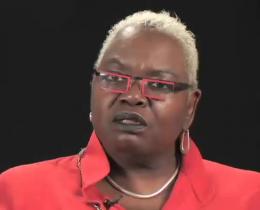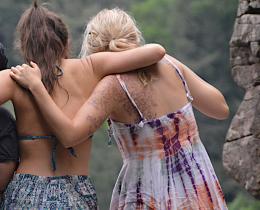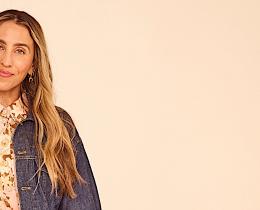Omega: What was it like to grow up in a musical household?
Ysaÿe: My father taught piano, violin, and viola in our home, and I wanted to do what they were doing. I remember at two and a half I had this little, tiny violin, and he started teaching me how to hold it. I was around music all the time and played in the orchestra in junior high school and then high school, and sang in a choir while I was in junior high school. It was a community choir, and all we did was spirituals.
Omega: What’s the first lesson you teach when working with a new group of students?
Ysaÿe: I don't focus on the vocal, because most people will tell you, “I can't sing. I can't match the tune.” I really don't care about that. I want to take their minds off what they think they can or can't do. I want people to just feel free. If you showed up, then you are gonna sing, period. Very often I will do a children's game song and just have people feeling silly. Depending on the amount of time, I launch into a discussion about worldview because I want people to understand the context in which I do music. I want people to understand the evolution of music from Africa into African-American communities, and up to the civil rights movement particularly.
Omega: Why is singing in community so important to you and how does it differ from singing alone?
Ysaÿe: I feel it's important for people to sing and to understand the role that singing has played. Throughout the history of African-Americans, but also in labor movements and women's movements too, song was a part of our culture, and it's not now. I started community singing in a church because there were people who wanted to sing, but to be in the main choir you had to read music. And I said, “No you don't have to read music. Let's just get together and sing.”
It's the way that Sweet Honey operates. We just sing. There's no music that passes between us in terms of our eyes, it's all through the voice and ear, and so I began to understand the importance of oral tradition. Many of the people who are top musicians in our country don't read a note, and yet they are winning Grammys and writing and performing amazing music.
We're talking about the written system and the oral system. One is not better than the other. They are simply two systems. I find that when I go into universities and schools of music, people are listening to me as if this is something they've never heard before. I am, in fact, validating oral traditions. It was not anything that I ever started out to defend, but it has evolved because my understanding of what I was doing evolved.



